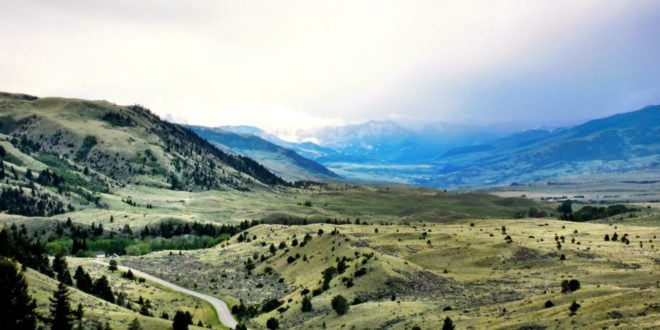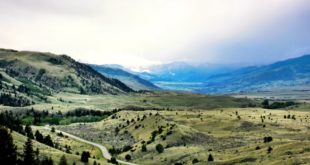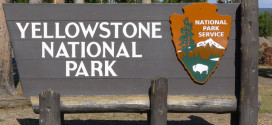Opponents of a proposed mine just north of Yellowstone National Park in Montana’s Paradise Valley won a key legal victory when Park County Judge Brenda Gilbert ruled that the Montana Department of Environmental Quality (DEQ) must conduct a more extensive environmental review before issuing an gold mining exploration permit.
Lucky Minerals, Inc. wants to search for gold in Emigrant Gulch, but the proposed project has generated opposition from an assortment of Montana groups. The decision is the latest development in a lawsuit filed by the Greater Yellowstone Coalition and the Park County Environmental Council in 2017.
The Lucky Minerals Proposal
On July 26, 2017, the DEQ granted permission for Lucky Minerals to perform exploratory drilling in Emigrant Gulch. The DEQ conducted an Environmental Assessment, which concluded the project would not have significant environmental impacts. The DEQ also found that an Environmental Impact Statement – a significantly more extensive review – was not required.
Judge Gilbert summarized the proposed exploration project:
Lucky’s proposal is to drill 46 exploratory holes, each up to 2,000 feet deep, at 23 locations in Emigrant Gulch. Drilling would take place for nearly 24 hours a day over the course of two three-month field seasons. Lights similar to those used by highway construction crews would light the operation each night. The project would require the use of a D-7 bulldozer, a G-12-14 grader, a JD 50 excavator or backhoe, two LF-70 drilling machines, three diesel or gas-powered water pumps, two service trucks, a four-by-four pick-up truck and two ATV’s.
In November 2017, Lucky Minerals announced that it had secured funding of roughly $2 million from Toronto-based Clarus Securities to conduct the exploration project.
Legal Opposition by Environmental Groups
The Park County Environmental Council and the Greater Yellowstone Coalition, represented by attorney Jenny Harbin of Earthjustice, brought suit in September 2017 against the DEQ and Lucky Minerals. The groups claimed that DEQ was required to conduct an Environmental Impact Statement to assess potential harm of the proposed exploration because it is a step toward full-scale mining activities in the region.
The plaintiffs contend that improvement of access roads for the project would disrupt wolverine and grizzly populations. These roads would allow increased human access to sensitive areas long after the exploration was complete. Water quality was also raised as a significant issue. Plaintiffs said that the DEQ selectively relied on limited data and ignored evidence that discharges of artesian water during the drilling could harm surface and groundwater. The court agreed that DEQ failed to properly assess these impacts.
Another concern is the potential that Lucky could drill holes at an angle that could locate mineral deposits under adjacent federal lands. Such information could give Lucky the ability to assert a right to mine under these lands. The court also agreed with plaintiffs that granting of the exploration license “does set a precedent that would commit the department to the future action of allowing mining and development of any valid existing rights to minerals underlying National Forest Lands that may be established by information gained in the exploration activities.”
Finally, the court agreed that DEQ failed to consider feasible project alternatives:
DEQ in this instance, gave unwarranted deference to Lucky’s proposal, without conducting an independent analysis of alternatives, particularly the “no night drilling” and “one season” alternatives in order to determine whether the environmental impacts could be reduced while still meeting the basic goals of the project.
The 32-page decision can be accessed here.
What’s Next?
The decision of the court holds the DEQ acted improperly, but does not necessarily halt the exploration. According to the Bozeman Daily Chronicle, the decision does not void Lucky’s exploration license, which could still allow the project to commence as early as July 15. It is also unclear whether the DEQ or Lucky will appeal. Vice-President Shaun Dykes told the Bozeman Daily Chronicle that Lucky’s Board of Directors would decide how to proceed in coming days.
Legislative tactics are also being used by opponents to mining in the region. In April 2017, Senator Jon Tester introduced the Yellowstone Gateway Protection Act, which would ban mining permanently on public lands in the region. Currently there is a two-year moratorium on mining public lands in the region, announced by the Obama Administration in 2016. These initiatives do not directly impact exploration on private lands, but could impact the viability of any full-scale mining.
While opponents have won a battle, a protracted fight on many fronts is likely to continue for many years.
 Yellowstone Insider Your Complete Guide to America's First National Park
Yellowstone Insider Your Complete Guide to America's First National Park


